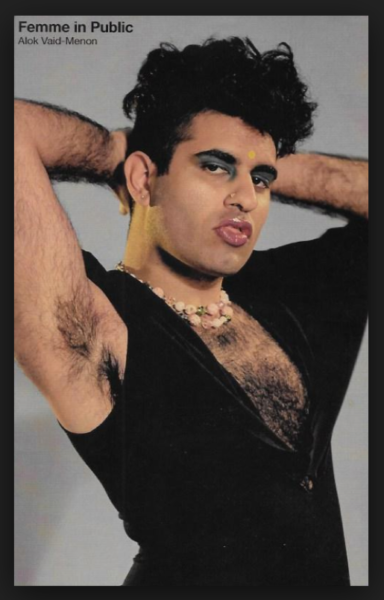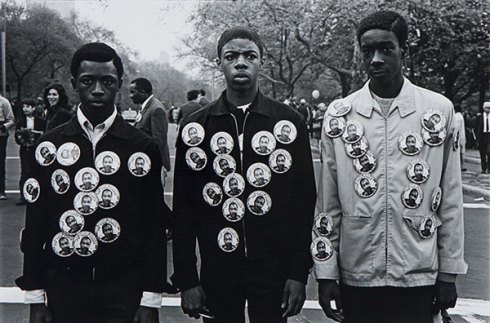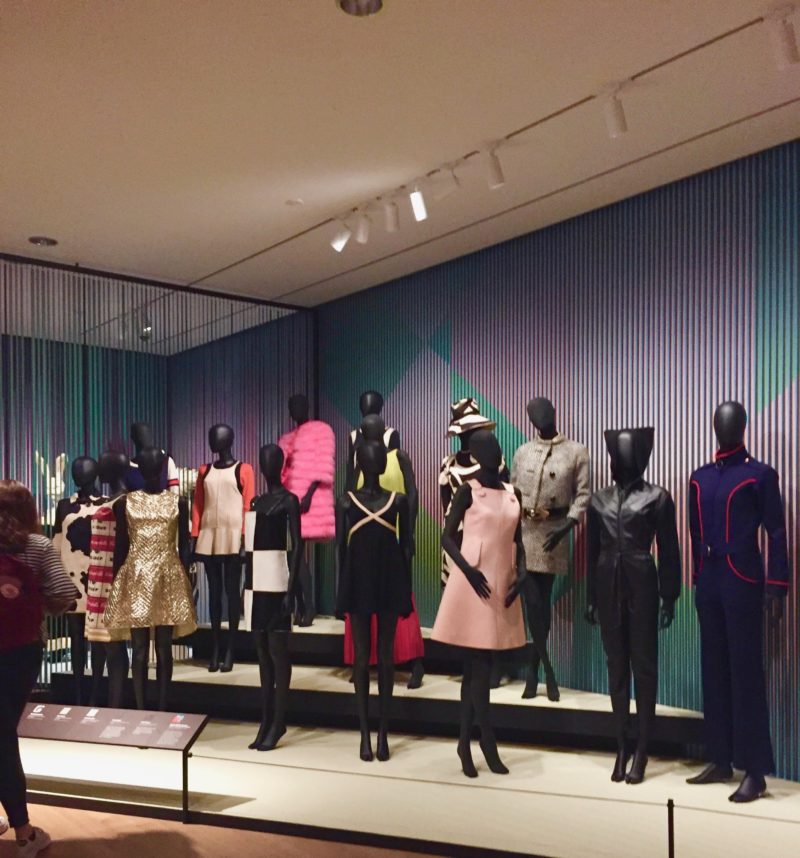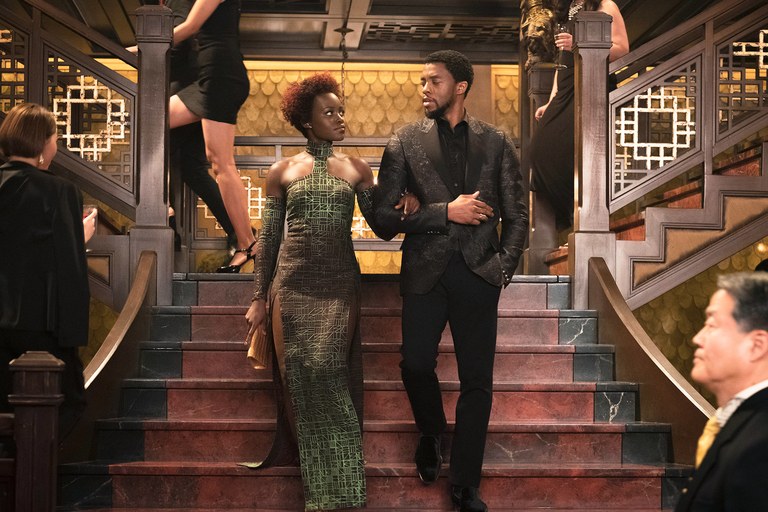Leah Gouget-Levy is a current PhD candidate who is in her third year at the Courtauld Institute of Art and works at the London College of Fashion archives as Archives and Curatorial Assistant. She completed her MA at the Courtauld through Rebecca Arnold’s Documenting Fashion special option and earned a BA in the History of Art from University College London. In this interview that was conducted in late July Leah talks about her journey to the Courtauld, her PhD dissertation, and her long-standing fascination with the connection between time and fashion.
IW: How did you get into fashion and dress history?
LGL: I was always interested in fashion and it was one of my passions when I was growing up. While I was doing my undergraduate, I also became really interested in photography and film. I knew that Rebecca’s Documenting Fashion MA existed when I was doing my BA and once I graduated, and took a bit of time out, my thoughts returned to it. It seemed like a great combination of all my interests, so I applied and that’s where it all started.
IW: How did you know you wanted to get a PhD?
LGL: I saw the PhD as an opportunity to further expand my knowledge of fashion history. Because the MA program is so condensed, I wanted to keep exploring and working on some particular interests that I had begun to develop. The PhD was a way to pursue these in more depth.
IW: I saw that you wrote about fashion from the World’s Fair in your MA. How did you get the idea to write about that? And what was the research process behind that?
LGL: With the MA I remember that I had various topics that I was considering. But then I came across this wonderful short film,La Mode Rêvée, by Marcel L’Herbier. It was made for the New York World’s Fair in 1939 and it chimed perfectly with my interest in the subject of time. This was a topic that I had been thinking about since my BA when I wrote my dissertation about the temporal relationship between Andrei Tarkovsky’s polaroid photographs and his film The Mirror (1975). La Mode Rêvée played on similar themes, but in relation to fashion, so it was an interesting opportunity to explore those themes in a slightly different direction. My PhD directly builds on this work by considering the temporal experience of fashion in relation to photography. So, there is a clear thread running through all those things. It didn’t seem so clear at the time I was doing it, [but] it was more the case of those are my interests and somehow, I kept coming back to them.
IW: Wow, that’s really interesting! Especially since this year’s Met Gala theme was about time and fashion. You’re clearly in tune with something that’s happening in fashion right now.
LGL: (Laughs) Yeah, it is funny. It’s definitely something that is being thought about at the moment. There’s obviously the Met’s exhibition, but there’s also an anthology about fashion and time coming out soon in English, co-edited by Caroline Evans. So, there’s something in the air! It’s one of those funny things where nothing is deliberate but suddenly things converge.
IW: Yeah! Because in a weird way (and I wanted to get your opinion on this) with everything that’s happening a lot of shows are being shown online as opposed to going to this city and that city. And I was wondering if you thought that maybe this is another kind of mini World’s Fair? [Because] it’s everybody converging on this one place that everybody can access and see what’s happening from every designer around the world.
LGL: That’s a really interesting observation! I hadn’t actually thought about it from that perspective. You’re right that there’s something super interesting happening in terms of the condensing of space, similar to the way in which the World’s Fair worked. There does seem to be a shift from the very distinct geography of fashion weeks as we have known them in Paris, London, New York, Milan… I’ve actually been thinking about the recent developments in fashion from a slightly different perspective – in terms of the time of the fashion system and the way in which designers are moving away from the traditional calendar, trying to find alternative time scales to work to. I’m currently thinking about how I might address this in my PhD.
IW: What are you writing [your PhD] about?
LGL: My PhD is about early 20th-century fashion photography and the work of the Séeberger Frères, fashion reportage photographers working in France. Basically, they were early street style photographers taking photographs of (mainly) women at glamourous sea-side resorts and the horse races between 1909 and 1939. I am focusing in particular on what their work reveals about the relationship between fashion and time, and how is this represented in, and experienced through photography.
IW: Rebecca told us that you got a job at the London College of Fashion archives. If you were able to start it how has it been? Also, since you have told me so much about your work and how it deals with time, has working in the archives influenced your dissertation in any way?
LGL: Yes, I was really thrilled to have been offered the job as Archives and Curatorial Assistant at LCF and despite everything, I was able to start in June. It has definitely influenced my PhD and I am actually working on a chapter at the moment that considers the way in which the organization of the Séeberger Frères archive at the Bibliothèque National de France affects the experience of their photographs. So, while I’m working with the LCF archive these issues are also at the forefront of my mind as I am thinking a lot about how an archive is constructed and how that influences the way in which we experience and study fashion history.
IW: Do you have any advice for incoming or prospective students in the MA or doctoral program?
LGL: I would say that, if you have the chance, read the books on Rebecca’s reading list before the year starts! It is an intense course and there’s a lot that you have to do. So, take that time before you start [your course] and just read around and get a feel for things. I would also recommend getting involved as much as you can with university life – including embracing things that are not directly related to your work or special option. The Courtauld is such a great place and there are constantly things going on, for example with the Research Forum and events that Rebecca organizes.
IW: Have you thought about what path you want to go down when you finish your PhD? And is there another area that you are interested in studying?
LGL: To be honest, I feel really lucky to have the job at LCF, as working with an archive was always something that I wanted to do after I finished my PhD! So, I’m looking forward to continuing my work there. Alongside that, I would also be keen to continue teaching, as it’s something that I have really enjoyed doing over the past few years while I’ve been at The Courtauld.
In terms of research, it’s true that when you work on a PhD you are focused on a very specific subject. So, it will be really exciting to start a new project! For example, I would be very keen to think more about the temporality of fashion beyond the Western, and specifically French, fashion system.
[Answers have been edited for clarity]





















![Photo of woman in green dress dancing from Film Lumiere no 765,1- Danse serpentine [II]](https://sites.courtauld.ac.uk/documentingfashion/wp-content/uploads/sites/27/2019/11/Imani-Film1.jpg)
![Photo of woman in pink dress dancing from Film Lumiere no 765,1- Danse serpentine [II]](https://sites.courtauld.ac.uk/documentingfashion/wp-content/uploads/sites/27/2019/11/Imani-Film2.jpg)



















